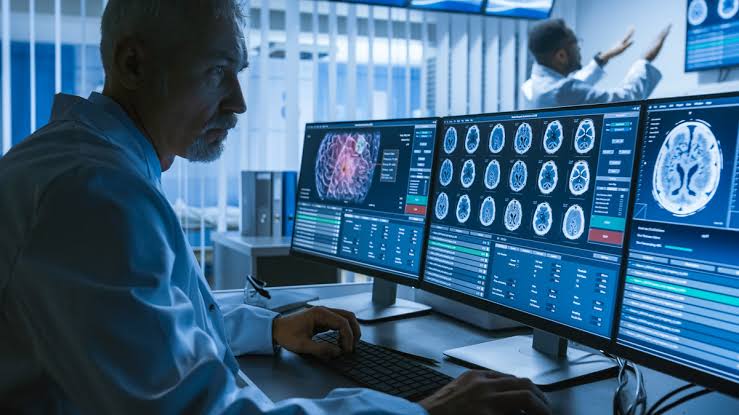
Stargate Initiative: Using AI to Tackle Cancer and Revolutionise Global Healthcare
In a landmark announcement, President Donald Trump has introduced the Stargate Initiative, a $500 billion project designed to revolutionise healthcare and accelerate the fight against cancer. By harnessing cutting-edge artificial intelligence (AI), Stargate aims to redefine cancer detection, treatment, and prevention globally, promising hope to millions worldwide.
Leveraging Innovation for Health
Developed in collaboration with leading technology firms such as Oracle, OpenAI, and SoftBank, Stargate’s vision centres on the transformative potential of AI in healthcare. The initiative’s cornerstone is a $100 billion AI data centre currently under construction in Texas, heralded as a pivotal step toward medical progress and economic growth.
Trump has positioned Stargate as a global effort, underscoring its commitment to addressing cancer as a universal challenge. “This initiative is about showing what we can accomplish when innovation and collaboration come together,” he remarked during the announcement.
Larry Ellison, chairman of Oracle, echoed this sentiment: “With AI, we can build tools that will change the way we fight cancer and create pathways for future medical breakthroughs.”
How AI Could Transform Cancer Care
Stargate focuses on key areas where AI can bring revolutionary advancements:
AI systems can analyse vast datasets, including imaging scans and genetic information, to detect cancer in its earliest stages. According to the National Cancer Institute, early detection improves survival rates by up to 50%, and AI promises to make this a routine practice globally.
The initiative aims to utilise AI to craft tailored treatment plans based on each patient’s genetic profile. Targeted therapies and advanced vaccines, such as mRNA technology, are central to this approach, offering precision and efficiency in care.
3. Accelerated Drug Development
AI has already shown its capacity to speed up the discovery of new cancer therapies. For example, DeepMind, a Google subsidiary, recently demonstrated how AI algorithms can predict protein structures crucial for drug design. Stargate leverages similar innovations to reduce development timelines from years to months.
Ensuring accessibility for low-income regions is a fundamental goal of Stargate. By reducing costs and improving scalability, AI-powered solutions have the potential to close the healthcare gap for underserved populations.
Economic and Technological Benefits
Beyond its healthcare ambitions, Stargate is a major economic undertaking. The Texas data centre is expected to create 100,000 jobs across the technology, construction, and healthcare sectors. Additionally, this project positions the United States as a global leader in AI-driven solutions, inspiring other nations to invest in similar innovations.
Challenges on the Horizon
Despite its promise, Stargate faces significant challenges that must be addressed for its success:
● Infrastructure Development: Many low-income countries lack the technological framework to adopt AI-driven healthcare solutions.
● Affordability: Ensuring cutting-edge treatments remain cost-effective will be crucial for widespread implementation.
● Collaboration: Success will hinge on partnerships between governments, private companies, and international organisations to share resources and expertise.
Global Collaboration for Progress
Stargate is designed as a collaborative effort, inviting nations worldwide to contribute and benefit. Cancer knows no borders, and international partnerships will play a critical role in extending its impact.
For developing nations, the initiative offers a pathway to reduce dependence on costly healthcare infrastructure. AI innovations can democratise access to life-saving tools, a step aligned with the United Nations’ Sustainable Development Goals.
A Vision for the Future
The Stargate Initiative reflects a bold vision of what is possible when technology meets determination. By investing in AI to tackle cancer, the project aspires to transform global healthcare while fostering international unity.
As the world watches this ambitious effort unfold, Stargate serves as a reminder that with the right leadership, innovation, and collaboration, even humanity’s greatest challenges can be met with hope and progress.
Dr. Brian O. Reuben is the Executive Chairman of The Sixteenth Council.



